With massive investment, York is riding the wave of evolution
York Print Group is set to leverage its Rs 40-crore spending to gain an upper hand in the packaging sector in Assam and Meghalaya in the North East, and even in Dhaka in Bangladesh, says Rushikesh Aravkar
29 Jun 2016 | By Rushikesh Aravkar
“This industry is capital intensive,” explains Ankit Mehra of York Print. “You shouldn’t be in the business unless you can generate significant cash on the bottom line that can help you to invest in new equipment for the future.”
York has done exactly this since the establishment of a packaging plant in Meghalaya in November 2002. Having positioned itself as a preferred packaging converter in the North East for the top FMCG companies, the business is cash generative.
The company has now embarked on a Rs 40-crore investment programme that includes capacity additions, new plants, and expansion in Bangladesh.
The fact that York has grown by 27% in FY 2015 and its sales turnover has exceeded Rs 170 crore from Rs 97 crore five years ago, tells you exactly how capital intensive print can be. Equally, it says something about the confidence the York team has in its ability to maintain profit levels in a difficult market even while operating from a geography characterised by frail infrastructure. It has implemented the expansion plan when a majority of companies are still playing a waiting game.
Mehra believes the essential quality required to survive in the North East is to grab the opportunity as and when you see one. “Our customers gave us the opportunity to operate in the North East in 2002, and we seized it. Here, the business is limited, and one should be ready to face challenges and grab the opportunities whenever they appear,” he says.
The Kolkata-based company, which started as a screen printing firm in the early 1980s is ready to face the challenges. “We don’t believe things are going to get any easier – it’s only going to get tougher,” says Mehra. “But we believe it’s the right movefor York to invest now in order to grow.”
The plan has already started yielding result, as the company has secured its place on the vendor roster of key FMCG players like Godrej, Emami, GSK, Pidilite, Eris Life Science and SC Johnsons, among others.
With this, the company is set to boost its turnover to Rs 210-crore in FY 2016. “We had to invest. The primary reason is the cutthroat competition. The latest technology gives us an edge over the competitors,increases capacity and reduces delivery time.”
A family business in every sense of the word, Mehra now realises that York Print Group needs to be a professionally-run corporate house. To this end, York has hired industry experts and consultants and has gone on board for quality approach with 5S, Quality Control Circles (QCC), Total Productive Maintenance (TPM), etc.
“We only employ and train local people because we want to build loyalty within the organisation,” says Mehra. This local employee base, most of who live within walking distance of the site, is the heartbeat of the firm, the driving force that is the secret of York’s well-being.
Significant investment
However, as Mehra is quick to point out, a printing company requires constant feeding in both energy and cash. This year’s addition to the Guwahati facility has been a KBA Rapida 106 eightcolour plus coater press.
“The new Rapida 106 will give York extra firepower in one of the most crucial areas of the business. The eight-colour press is capable of inline cold foiling such that two stations are required for foiling and adhesion while the remaining six stations can be used for CMYK plus two special colours.
With the new KBA on its shopfloor, York’s conversion capacity will rise to 2,000 tonnes.
Besides the KBA, a significant investment has gone in York’s corrugation unit
in Guwahati and a fabrication unit in Dhaka.
According to Mehra, the 40,000 sq/ft corrugation unit is worth Rs 10 crore. Mehra explains, “There is lot of opportunity in the corrugation business in the North East, thanks to the lack of highquality corrugated box suppliers. Our existing customers need to source shippers from Kolkata and wanted us to manufacture good quality shippers locally.”
The corrugation unit is equipped with a fully automatic corrugation line with four-colour flexo printing facility. With this, the company can convert 1,000 tonnes of kraft paper and thereby will rank among the top five corrugators in the region.
“There are very few good quality players in this region. And hardly one or two are automatic plants. For us, the differentiator would be the technology we have invested in,” adds Mehra.
Dhaka: Opportunity from the East
The Dhaka operations will be set up in two phases. In the first phase, there will be die-cutting and side-pasting machines and in second phase a UV press and foil stamping machines. “This unit is being set up near Dhaka in Maona district Phase one of the plant was made operational on 1 May 2016,” informs Mehra.
“Packaging converters in Bangladesh are unorganised and not technically equipped. The local converters are using old equipment due to which they are unable to provide good packaging solutions and customers are looking for converters set up in Bangladesh who can provide packaging solutions similar to those available in India,” he adds.
The 50,000 sq/ft Dhaka unit is a fabrication unit and will be equipped with Bobst Novacut die-cutter, and Bobst Ambition folder-gluer with off-line blank inspection machine.
“The idea is to support this unit from the Assam unit in terms of printing and other value-addition related activities. Once we have established ourselves in Bangladesh, we will put up a complete line,” says Mehra.
Currently, the total size of investment in Bangladesh is in the tune of around Rs
7-crore. Mehra says, “With all the additional investments, we plan to touch Rs
210-crore in FY 2016 and Rs 250-crore in FY 2017,” he concludes.
|
Fact file |
|
Managing director: Anil Kumar Mehra Director: Ankit Mehra Turnover: Rs 170- crore Certification: ISO 9001: 2008 & FSCTM COC Certified |
| 1980:Established as ascreen printing unit |
| 2002: Plant-1: Meghalaya unit |
| 2009: Plant-2: Assam unit one |
| 2013: Plant-3: Assam unit two |
| 2016: Plant-4: Assam corrugationunit and Dhaka fabrication unit |


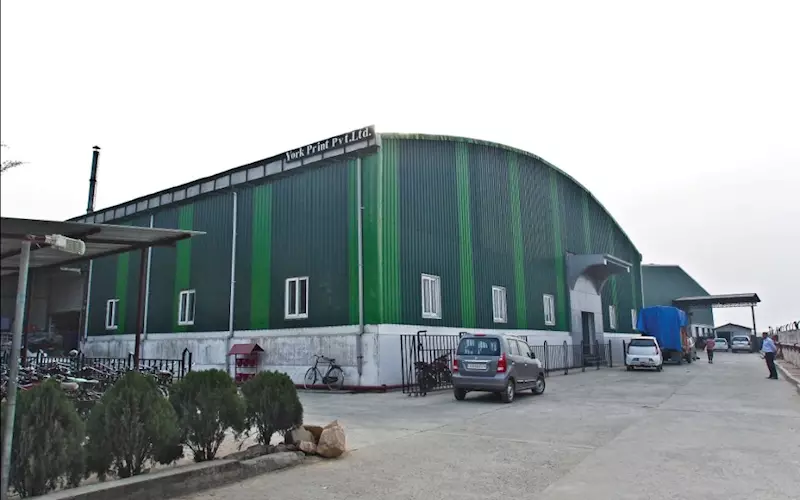
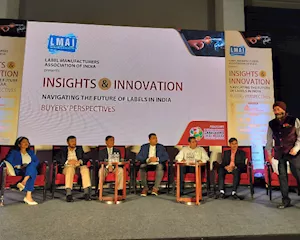
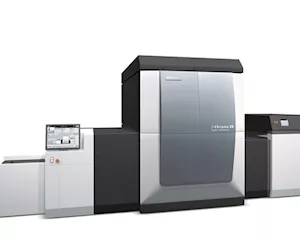
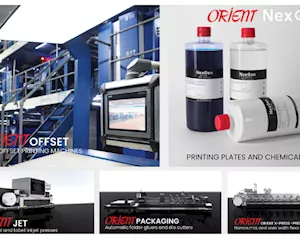
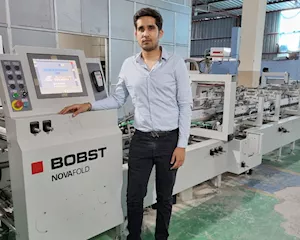
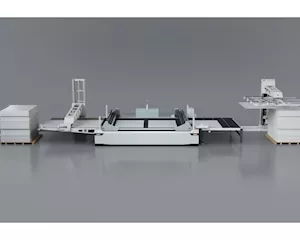






 See All
See All